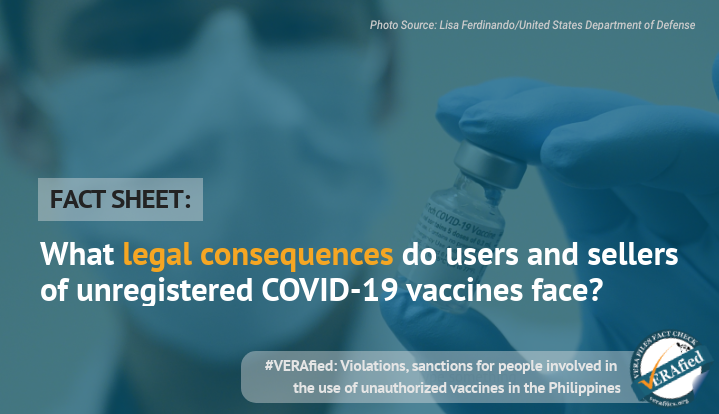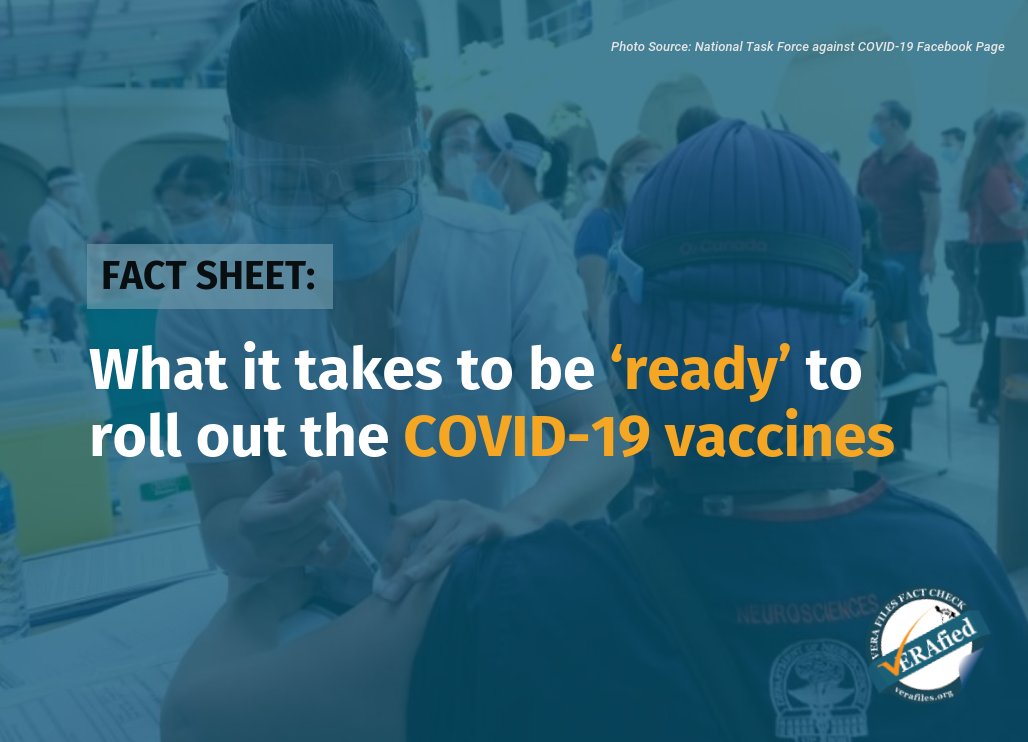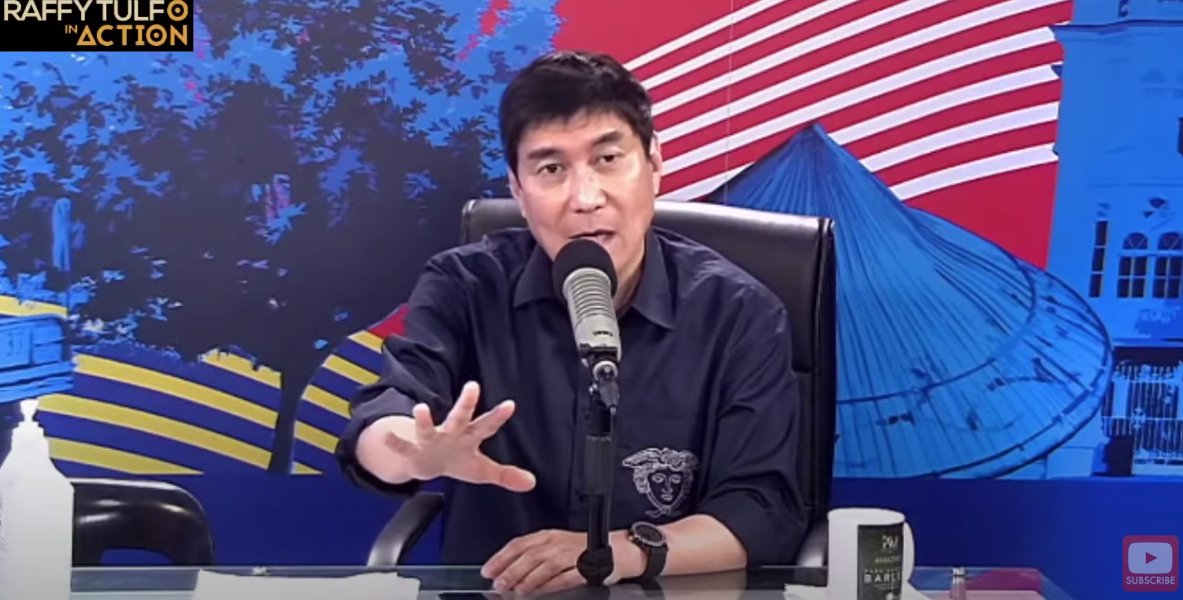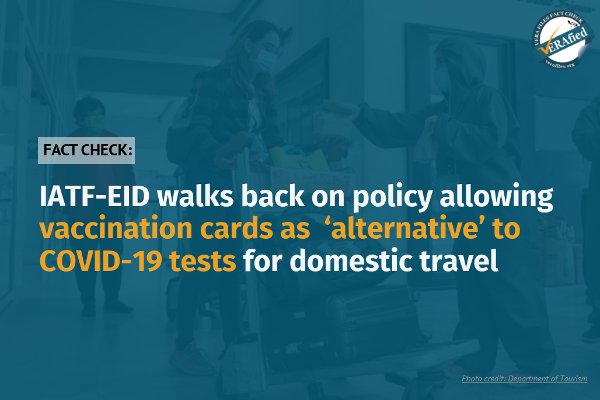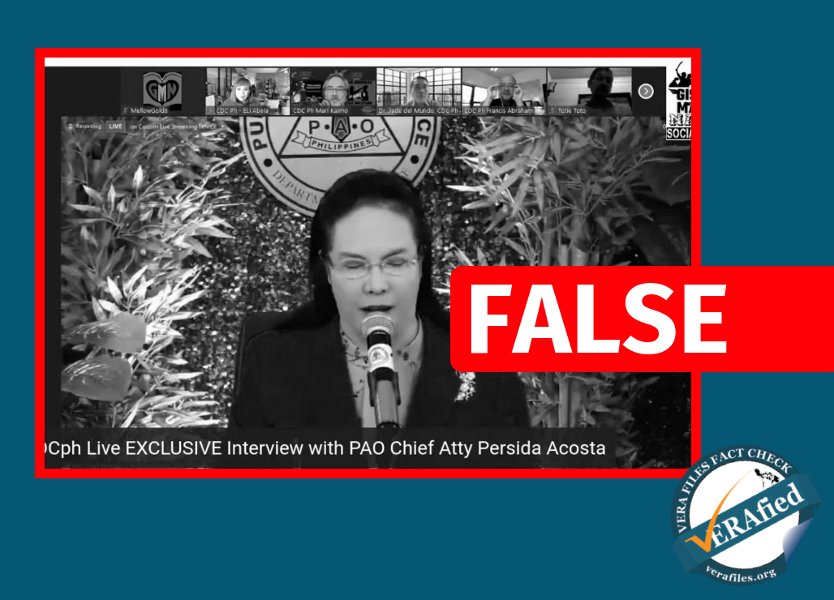At least three government agencies are conducting separate investigations into the use of smuggled and unauthorized vaccines against the coronavirus disease 2019 (COVID-19) by the Presidential Security Group (PSG) when no vaccine had yet been approved, even for emergency use, in the country at the time.
The Food and Drug Administration (FDA) and the Bureau of Customs (BOC) have said they will look into how the illegal vaccines slipped through the country’s ports and were used to vaccinate security escorts of President Rodrigo Duterte.
Justice Secretary Menardo Guevarra has issued a “general instruction” to the National Bureau of Investigation (NBI) to focus its probe on how the COVID-19 vaccines entered the Philippines. This came following media reports that some 100,000 Chinese workers in Philippine Offshore Gaming Operator (POGO) companies were clandestinely vaccinated with unregistered vaccines in the country.
The Armed Forces of the Philippines (AFP) planned to conduct its own probe starting Jan. 5, but Chief of Staff Gilbert Gapay cancelled it a day after Duterte, the commander-in-chief, ordered the PSG to not cooperate with Congress on its investigation of the smuggled vaccines.
The controversy involving the PSG began when Duterte said in a public address on Dec. 26 that ”almost all” soldiers had been vaccinated against COVID-19, but he didn’t explicitly say which kind of vaccine they used. At one point, he said many have been inoculated with the China-made Sinopharm vaccines but didn’t specify who.
On Jan. 14, FDA Director-General Eric Domingo announced the grant of the first-ever emergency use authorization (EUA) to the COVID-19 vaccine developed by Pfizer-BioNTECH. Three other companies — AstraZeneca, Gmaleya, and Sinovac — have pending applications with the FDA.
In a Dec. 28 statement, PSG Commander Jesus Durante III confirmed that a “handful” of Duterte’s close-in aides were among the soldiers who received COVID-19 vaccine as early as September 2020, but he said the president was informed about it in October when the presidential security aides had been fully inoculated. (See VERA FILES FACT CHECK: Duterte contradicts past pronouncement, Durante on having known about the PSG COVID-19 vaccination)
Durante refused to confirm or deny if he was among those inoculated. He also declined to name the vaccine brand used, who “donated” the jabs, and how those were brought into the country.
Despite criticisms for gaining access to COVID-19 vaccines ahead of health workers and other priority sectors, Duterte and other Cabinet officials such as Interior and Local Government Secretary Eduardo Ano and Defense Secretary Delfin Lorenzana defended the inoculation of the PSG members and justified that their use of unauthorized vaccines was intended to protect the president from getting the disease.
Here are five things you need to know about violations and the sanctions for people involved in flouting the laws and regulations on the use of unauthorized vaccines:
1. Persons inoculated with unauthorized vaccines have no legal liability.
Both Domingo and Guevarra said that individuals vaccinated with unregulated COVID-19 vaccines have no legal liability.
“Under our existing laws, a person who freely and voluntarily gets himself inoculated with an unregistered or unauthorized drug or vaccine does not incur any criminal liability, unless he himself has caused its unlawful procurement or promotes its use by other people,” Guevarra told the media.
Durante said the PSG “sourced out … asked for … requested for” the vaccines used on his personnel, but added that “no public funds” were spent in acquiring those. Pressed to identify the vaccine source, he simply said, “it could be a person, it could be a state, or it could be anybody.”
Guevarra said it is important that regulations on vaccine importation and administration are “strictly enforced for the benefit of everyone,” although the issue of whether to get a vaccine, he said, is a “matter of personal survival.”
As early as April 2020, FDA has been warning the public from taking unauthorized COVID-19 vaccine because “there is no guarantee on the safety, quality, and efficacy of said vaccine as the same has not undergone the required technical evaluation by the FDA.” (See VERA FILES FACT CHECK: Posts claiming PH has ‘approved’ COVID-19 cure FALSE)
2. Health practitioners who administer unauthorized vaccines stand to lose their professional license.
Those who “knowingly or willfully administer an unregistered vaccine” may be held liable under Republic Act (RA) 2382, or the Medical Practice Act of 1959, according to Guevarra.
Health Secretary Francisco Duque III said his agency, in coordination with the Professional Regulatory Commission (PRC), will investigate the illegal administration of unauthorized vaccines by doctors and other medical professionals, who face revocation of their medical licenses.
The Philippine Medical Association (PMA), the only PRC-accredited professional association for doctors in the country, prohibits its members from offering or administering unregistered vaccines to their patients during and post-pandemic, based on its guidelines issued last year, which now form part of the organization’s code of ethics for medical professionals.
Under Section 24 of RA 2382, doctors found violating any provision of the PMA’s code of ethics will be reprimanded and have their licenses suspended or revoked.
Asked if a medical worker administered the unregistered vaccines to Duterte’s close-in security aides, Durante said the soldiers injected the vaccines by themselves, although the PSG has its medical teams. Further asked who guided the soldiers how to administer the vaccine, the PSG chief curtly replied: “Everything is in the manual.”
3. Smugglers and sellers liable under health, customs, and other related laws.
Section 11 of RA 3720, as amended by RA 9711 or the Food and Drug Administration Act of 2009, prohibits and penalizes the “manufacture, importation, exportation, sale, offering for sale, distribution, transfer, non-consumer use, promotion, advertisement, or sponsorship” of any unauthorized vaccine in the country.
The FDA director general can cancel or suspend any authorization, impose fines ranging from P50,000 to P500,000, and order the destruction of products found in violation of RA 9711.
RA 10863, or the Customs Modernization and Tariffs Act, prohibits the entry of unlicensed vaccines, according to BOC Assistant Commissioner Vincent Maronilla.
Maronilla said administrative and criminal liabilities based on special laws await those who brought in “illicit medicines,” while officials found committing administrative lapses may be held liable.
4. Only the national government can buy vaccines with EUA directly from foreign pharmaceutical companies
Except for the national government, other entities such as local government units or private entities are not authorized to buy vaccines for emergency use directly from companies. EUAs do not equate into a “marketing authorization,” according to Domingo.
“Ang pwede pa lang bumili niyan ay national government kasi EUA pa lang siya. Nagiging available lang sa market ang isang produkto kapag nabigyan na siya ng certificate of registration. At hindi pa mabibigyan itong mga bakunang ito ng CPR kasi hindi pa naman talaga effectively or technically tapos ang kanilang clinical trials … hanggang trial 3 pa lang iyang mga ‘yan,” Health Undersecretary Ma. Rosario Vergeire explained.
(Only the national government can buy (vaccines) because those are still under EUAs. The vaccines will become available in the market once they receive a certificate of registration. Those cannot be given CPR because they are still technically under clinical trials … still in Phase III of trial.)
Through Executive Order 12, series of 2020, Duterte authorized Domingo to issue EUA for qualified vaccines in response to the COVID-19 pandemic, even before completing the Phase IV clinical trials. Manufacturers will be able to sell vaccines in the regular market only after successfully finishing all clinical trials and securing a “certificate of product registration” (CPR) from FDA.
Vergeire reiterated the need to cooperate with the national government after several local government units (LGUs) such as Makati City announced early in January that they have allotted funds to buy COVID-19 vaccines for their constituents.
While LGUs and private organizations have finalized agreements with companies developing the vaccines, the procurement process is still done through the national government.
Asked by lawmakers why the national government appears to “monopolize” the purchase of vaccines, officials such as Secretary Carlito Galvez Jr. and Domingo said during a Senate hearing on Jan. 11 that procurement laws, safety concerns, and EUA, which is not a commercial marketing authorization, restrict LGUs and private companies from directly purchasing the vaccines.
In November 2020, Duterte named Galvez, who also heads the National Task Force (NTF) Against COVID-19, as “vaccine czar.” He tasked Galvez to be the government representative to negotiate directly with companies for the acquisition of vaccines. (See VERA FILES FACT SHEET: The vaccine czar, explained)
Galvez said the government will begin in late February the vaccination of 50 million to 70 million Filipinos, using at least 148 million doses of COVID-19 vaccines from seven manufacturers, including AstraZeneca, Sinovac, and Pfizer/BioNTECH. Out of the seven companies, only Pfizer-BioNTECH has secured an EUA, which will allow it to bring vaccines into the Philippines.
5. Why is it important to get only the authorized or registered vaccines?
When asked about the risks and dangers of receiving unauthorized vaccines, Domingo told CNN Philippines in an interview that there is a “high possibility”of “counterfeit” or “spoiled” jabs, and that there will be no way to trace where the products came from if side effects would occur.
All vaccines that will pass through the regulatory process of FDA will undergo post-authorization or post-marketing surveillance to monitor their rollout, and potential adverse effects to vaccine recipients, among other relevant details.
FDA and DOH, with the National Adverse Events Following Immunization Committee (NAEFIC) under NTF’s COVID-19 Vaccine Cluster, will be the lead agencies in monitoring adverse effects of the vaccines to be used in the national COVID-19 immunization program of the government.
Sources
GMA News, Dobol B Sa News TV Livestream: December 29, 2020 | Replay, Dec. 29, 2020
Guevarra’s order to NBI
- Rappler.com, NBI ordered to probe illegally obtained vaccines in PH, Dec. 30, 2020
- Inquirer.net, NBI to probe unlawful entry, use of Sinopharm vaccine, Ded. 31, 2020
- Philstar.com, NBI to probe entry, use of unregistered vaccines, Dec. 31, 2020
Melo Acuna official YouTube channel, 100,000 POGO workers inoculated with COVID-19 vaccine, Jan. 4, 2021
AFP Spokesperson Edgard Arevalo official Twitter account, AFP Chief General Gilbert Gapay called-off scheduled fact-finding investigation …, Jan. 5, 2021
Presidential Communications Operations Office, Talk to the People of President Rodrigo Roa Duterte on Coronavirus Disease 2019 (COVID-19), Jan. 4, 2021
Presidential Communications Operations Office, Meeting of President Rodrigo Roa Duterte With Emerging Infectious Diseases Experts on Coronavirus Disease 2019 (COVID-19) – Part II, Dec. 26, 2020
Presidential Community Group, PSG OFFICIAL STATEMENT On The Vaccine Issue, Dec. 28, 2020
ANC 24/7 , PSG vaccinated against COVID-19 without Duterte’s knowledge – PSG Head | ANC, Dec. 29, 2020
ANC 24/7, PH Interior Chief Año: PSG vaccinations not part of rollout; Priority list remains | ANC, Dec. 28, 2020
ANC 24/7, https://www.youtube.com/watch?v=xDlBW0Sreh8&list;=ULqhn2B9RmEbE&index;=20, Dec. 30 ,2020
CNN Philippines, The Source: Eric Domingo and Rontgene Solante, Dec. 28, 2020
Food and Drug Administration, Caution on use of unauthorized vaccines, Dec. 28, 2020
Professional Regulatory Commission, Republic Act No. 2382, Accessed Jan. 8, 2021
Professional Regulatory Commission, General practice of Medicine, Accessed Jan. 8, 2021
PMA GUIDELINES FOR DOCTORS IN ADVERTISING/PEDDLING/POSTING SERVICES AND/OR PRODUCTS DURING THE PANDEMIC OR POST-PANDEMIC:, Accessed Jan. 8, 2021
Food and Drug Administration, RA 9711, Accessed Jan. 8, 2021
Bureau of Customs, RA 10863, Accessed Jan. 8, 2021
ABS-CBN News, Only nat’l gov’t can buy COVID vaccines under emergency use but LGUs can partner: DOH | ABS-CBN News, Jan. 4, 2021
Official Gazette, Executive Order 121, Series of 2020, Dec. 12, 2020
LGUs allocated funds for COVID-19 vaccines
- CNN Philippines, LIST: LGUs allot funds for COVID-19 vaccination, Jan. 5, 2020
- Philstar.com, Makati, other LGUs allot funding for COVID-19 vaccines, Jan. 5, 2020
- Rappler.com, As LGUs move to get COVID-19 vaccines, DOH asks: Work with us on rollout, Jan. 4, 2020
RTVMalacanang, Situation Briefing and Talk to the People on Typhoon ‘Rolly’ 11/2/2020, Nov, 5, 2020
Galvez: COVID-19 vaccination to begin in February
- Inquirer.net, PH can achieve herd immunity vs COVID-19 in 2021 if vax supply is enough — Duque, Jan. 11, 2021
- Manila Bulletin, COVID-19 vaccination to start by end-February, says Galvez, Jan. 11, 2021
- CNN Philippines, Vaccine czar eyes jabs by February, but Filipinos may need to endure pandemic until 2023, Jan. 11, 2021
Presidential Communications Operations Office, Public Briefing #LagingHandaPH: “Laging Handa: Covid-19 Vaccines Explained” hosted by PCOO Undersecretary Rocky Ignacio, Jan. 6, 2021
Food and Drug Authorization, FDA Circular No. 2020-036 || Guidelines on the Issuance of Emergency Use Authorization for Drugs and Vaccines for COVID-19, Dec. 14, 2020
Department of Health, DOH, FDA welcome EO on emergency use authorization, Dec. 3, 2020
Senate of the Philippines, Committee of the Whole (January 11, 2021), Jan. 11, 2021
Department of Health, FDA Special Announcement, Jan. 14, 2021
PTV, Statement of National Task Force Against COVID-19 Chief Implementer and Vaccine Czar Secretary Carlito Galvez Jr. clarification on the negotiation with Pfizer, Dec. 18, 2020
(Guided by the code of principles of the International Fact-Checking Network at Poynter, VERA Files tracks the false claims, flip-flops, misleading statements of public officials and figures, and debunks them with factual evidence. Find out more about this initiative and our methodology.)
